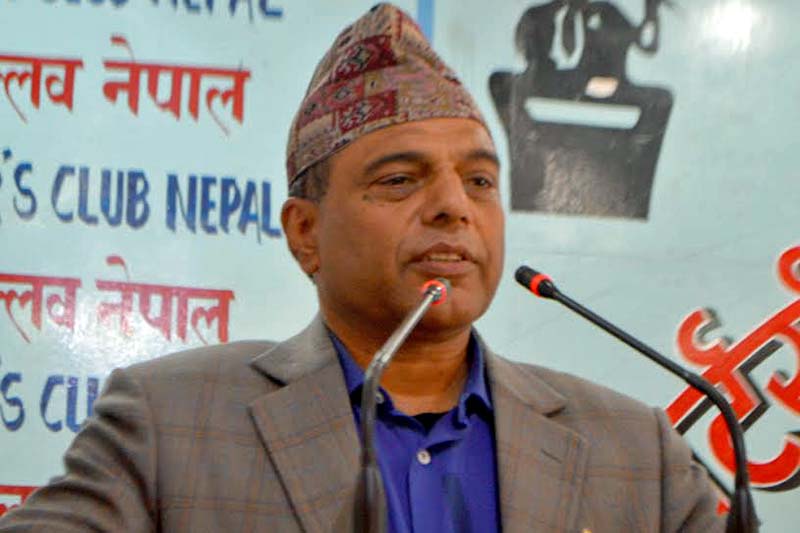Milk powder import curbs may be eased
Kathmandu, August 9
At a time when the private dairy factories are urging the government to lift the ban on import of milk powder, Agriculture Minister Chakrapani Khanal today said even if the rules were relaxed, not all stakeholders would be permitted to import the commodity as earlier.
“We can permit a single entity to import milk powder, if push comes to shove,” said Khanal, adding the restriction was necessary to ensure market for the local products.
As the market is facing milk shortage after the import of milk powder was banned five months ago, Khanal had summoned the stakeholders for a discussion today.
Informing that the private dairy factories have already run out of their stock of milk powder and are unable to supply dairy products as per the demand, Radha Krishna Sapkota, president of Nepal Dairy Association, said, “The government should relax the curbs for a short-term so that fresh milk can be imported from India.”
He said the imported milk could then be processed into powdered milk.
In order to fulfil the market demand during the lean season — a period from April to November — private dairy factories require 20,209 kg of milk powder per day.
Owing to the milk powder crisis in the local market, Anmol Dairy located in Panauti ceased its operations six days ago. Another domestic dairy factory — NOVA — had also temporarily halted operations as it struggled to procure milk powder.
The other private dairy factories have reportedly also slashed their daily supply by 25 to 30 per cent.
The private sector has requested the minister to allow import of powdered milk for at least three months, from mid-August to mid-November, in order to meet the market demand during festivals.
In contrast, Ram Krishna Acharya, general secretary of Central Dairy Cooperative Association Ltd Nepal, warned the minister that allowing import of milk powder now could result in long-term adverse effects.
“If the local factories are allowed to import milk powder for three months, they will build enough stock to cater to the demand for next two years, which will then affect local farmers,” he said.
“Rather, the government should think of ways to increase domestic production.”
The import of milk powder, meanwhile, has declined in recent years. The country imported milk powder worth Rs 713.4 million in fiscal 2016-17, which had dropped to Rs 574.4 million in 2017-18, and Rs 254.7 million in the first 11 months of 2018-19.
Khanal halted import of milk powder in April ‘to promote local products’. The restriction was imposed after the Ministry of Agriculture and Livestock Development received frequent complaints from farmers regarding non-availability of market for their produce and they had poured milk on the roads as a sign of protest.
Sumit Kedia, managing director of Sitaram Gokul Milk, pointed out that the shortage of dairy products will be more acute in the future if the import ban remained in place, especially as festivals — when the demand for dairy products surge — are nearing.
Khanal, meanwhile, said that the MoALD was planning to facilitate the supply of milk produced in rural parts of the country targeting the festive market.






